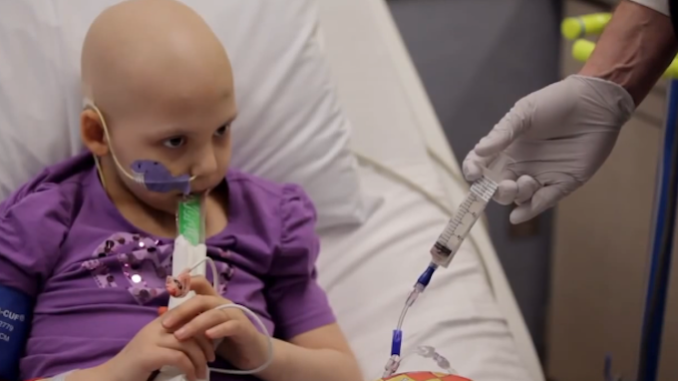
Curing patients of terminal illnesses, such as cancer, is not a “sustainable business model,” according to a new report by banking giant Goldman Sachs that suggests curing patients is not profitable enough, unlike “long-term treatment.”
The investment firm also urged investors to resist backing pioneering “gene therapy” treatments as “one-shot cures” are bad for business in the long term.

BYPASS THE CENSORS
Sign up to get unfiltered news delivered straight to your inbox.
You can unsubscribe any time. By subscribing you agree to our Terms of Use
Latest Video
In a report entitled “The Genome Revolution,” the worlds fifth largest bank asks: “Is curing patients a sustainable business model?”
Analyst Salveen Richter wrote in the note to clients Tuesday says that long-term treatments garner far more revenue than “one-shot cures,” saying:
“The potential to deliver ‘one-shot cures’ is one of the most attractive aspects of gene therapy, genetically-engineered cell therapy, and gene editing.
“However, such treatments offer a very different outlook with regard to recurring revenue versus chronic therapies.
“While this proposition carries tremendous value for patients and society, it could represent a challenge for genome medicine developers looking for sustained cash flow.”
According to CNBC, Richter cited Gilead Sciences’ treatments for hepatitis C, which achieved cure rates of more than 90 percent.The company’s U.S. sales for these hepatitis C treatments peaked at $12.5 billion in 2015, but have been falling ever since.
Goldman estimates the U.S. sales for these treatments will be less than $4 billion this year, according to a table in the report.
“GILD is a case in point, where the success of its hepatitis C franchise has gradually exhausted the available pool of treatable patients,” the analyst wrote.
“In the case of infectious diseases such as hepatitis C, curing existing patients also decreases the number of carriers able to transmit the virus to new patients, thus the incident pool also declines…
“Where an incident pool remains stable (eg, in cancer) the potential for a cure poses less risk to the sustainability of a franchise.”
The analyst didn’t immediately respond to a request for comment.

The report suggested three potential solutions for biotech firms:
“Solution 1: Address large markets: Hemophilia is a $9-10bn WW market (hemophilia A, B), growing at ~6-7% annually.”
“Solution 2: Address disorders with high incidence: Spinal muscular atrophy (SMA) affects the cells (neurons) in the spinal cord, impacting the ability to walk, eat, or breathe.”
“Solution 3: Constant innovation and portfolio expansion: There are hundreds of inherited retinal diseases (genetics forms of blindness)…”Pace of innovation will also play a role as future programs can offset the declining revenue trajectory of prior assets.”


